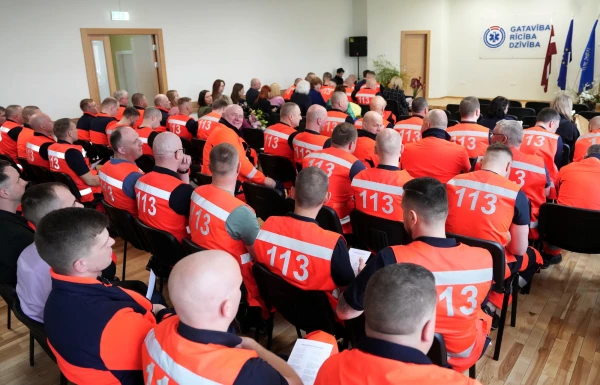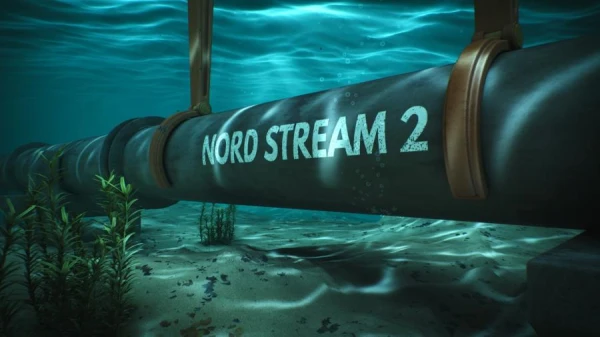
Discussions about combating piracy in Latvia have been ongoing for over 20 years. However, only at the end of last year did the Saeima adopt amendments to the Copyright Law that grant the National Electronic Media Council (NEPLP) the right to block pirate sites. This is the first real mechanism for combating illegally obtained content on the internet, but the regulator itself criticizes it as insufficiently effective, reports the Nekā personīga program (TV3).
Latvian laws do not allow for the quick blocking of Russian websites that illegally distribute Latvian films.
Nekā personīga
Anyone can access websites on the internet that illegally distribute Latvian films and series. There, one can find both recently released works and content from popular streaming platforms.
"Oleg" is a film by Jūris Kursietis from 2019. It was included in the program of the Cannes Film Festival and received numerous international awards. The film's producers took great care to protect it from theft, but now it has appeared on pirate sites in Russia.
"We managed to keep it safe for quite a while so that it was not available, but at some point, it did appear, and then it’s already a fight against windmills," said the film's producer, founder of the White-picture studio, Alise Telze.
Other films produced by Alise have also not been spared — "I Am Here" by Renārs Vimba and "Mom, I Love You" by Jānis Nords. Full versions of these films have been uploaded to the YouTube platform.
"There is an option to file a complaint that this has happened, and then you must either be the producer of the film or the director, confirm this with some documents, and then they act regarding copyright infringement. Now everything has become so complicated that sometimes it is very difficult to keep a film safe," she clarified.
Producers take many measures to prevent file leaks — they store them on secure platforms, regularly change passwords, and when passing films to the media or small screening venues, they apply watermarks.
Alise noted that both foreign and local films often "leak" right after being published on one of the major streaming platforms.
"As a producer, I am evaluated based on the views of the film. And if the film ends up on torrents or these illegal sites, I no longer receive information about the views, consequently, the share of viewers who could use legal platforms significantly decreases, and the overall picture becomes completely different," Alise Telze explained.
This year, pirates stole the award-winning Latvian series "Soviet Jeans" from the Go3 platform. TV3 reported the incident to NEPLP.
"When the series 'Soviet Jeans' appeared on our platform, soon after publication, at Go3's request, about 300 pieces of content were removed or blocked — on various platforms, servers, and as links. This particularly concerns those pieces of content that attract a lot of interest — the volumes can be very significant," said TV3 Group Latvia representative Kārlis Pozņakovs.
TV3 Group found nearly 500 links where all episodes could be viewed in full.
In the case of "Soviet Jeans," the losses are estimated at several hundred thousand euros, while the overall damage to Go3 from piracy could reach several million.
"It is clear that on our part, we try to protect the content from theft in advance as much as possible. We have various mechanisms and protection systems. These are watermarks, systems that prevent screen recording or creating screenshots. Nevertheless, the screen can simply be filmed with a camera — and the quality is lost. But for pirates, quality is not a priority, so this method is widespread," Pozņakovs clarified.
This year, amendments to the Copyright Law came into force, giving NEPLP the right to restrict access to pirate sites.
However, this mechanism only works if producers or distributors of films themselves find and specify specific sites where their works are posted without permission.
This year, NEPLP received only two complaints. ACME Films reported an illegal copy of the film "Conclave," and TV3 reported the series "Soviet Jeans." This allowed for the blocking of more than 120 sites.
"The Ministry of Justice believes that we cannot presume that these are pirate sites. Therefore, a system has been introduced where first a complaint is needed, then NEPLP writes a letter to this site with text — like, do you have copyright? Then, if the site does not respond, we must wait seven days, then we can impose a legal obligation on it, and again wait seven days — only after that can we block it," explained the chairman of the National Electronic Media Council, Ivars Aboliņš.
Aboliņš is dissatisfied with this procedure. NEPLP promises to initiate new amendments to the law so that clearly pirate sites can be blocked immediately, similar to how it is done in the case of illegal broadcasting of all television programming content. However, filmmakers will still have to submit complaints themselves.
"Currently, the law is arranged in such a way that Russian pirates are more protected than legal Latvian producers and directors," noted Aboliņš.
"This provision was justified by the reasoning that without prior communication it is impossible to accurately determine whether a specific site has the right to publish a particular film, because modern pirate sites are often deliberately designed so that it is not immediately clear that they are pirate. Therefore, without prior investigation and communication, one cannot assert with 100% certainty that 'the site obviously consists of pirate content.' Moreover, in the European Union, there is often the so-called problem of over-blocking, where legal sites are unjustifiably blocked," explained Ilona Petersone, head of the copyright department of the Ministry of Culture.
Pirate sites that showcase stolen films and series make money. Some try to deceive visitors and steal their data, but the main income comes from advertising.
"If you look at who is advertising there, the main volume of advertisers is various online casinos, gambling, betting," said Sandra Krauinja, a board member of the 'For Legal Content' society.
The expert explains that versions of films in Russian are most often leaked, as they reach a wider audience and, accordingly, bring in more profit.
"Piracy is aimed at the end user, but the money does not reach the entire chain, including even the music author," Krauinja clarified.
The expert from the 'For Legal Content' society urges industry representatives to actively report piracy cases to the regulator so that the fight against illegal sites proceeds faster. Meanwhile, it is impossible to determine how many people watch Latvian films in this way — pirate sites hide viewing data.













